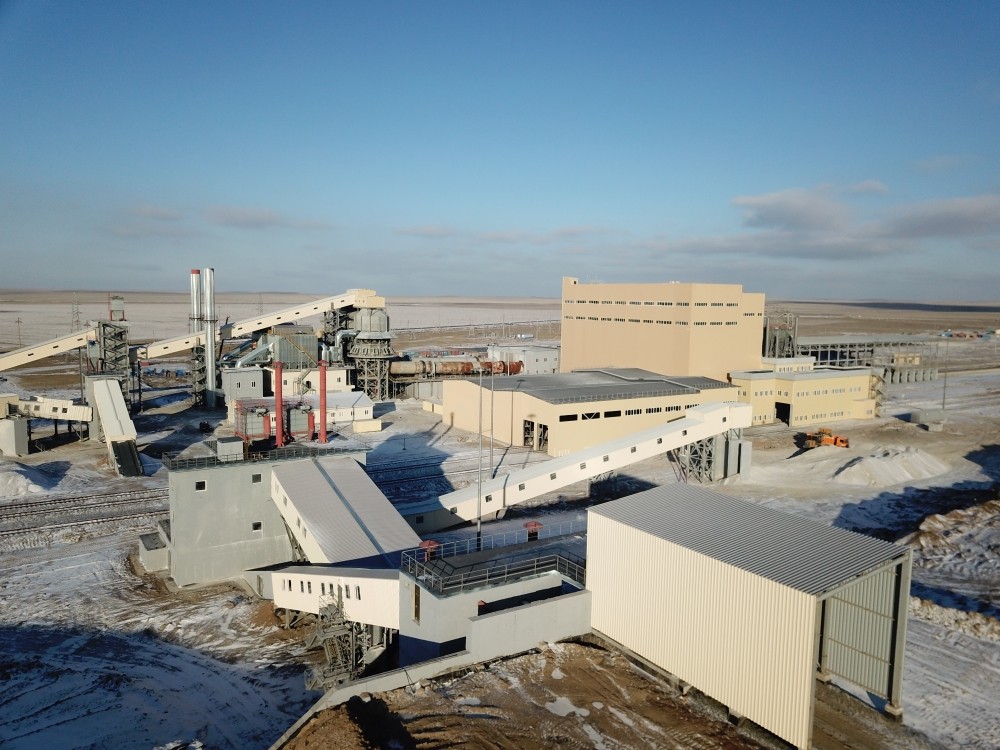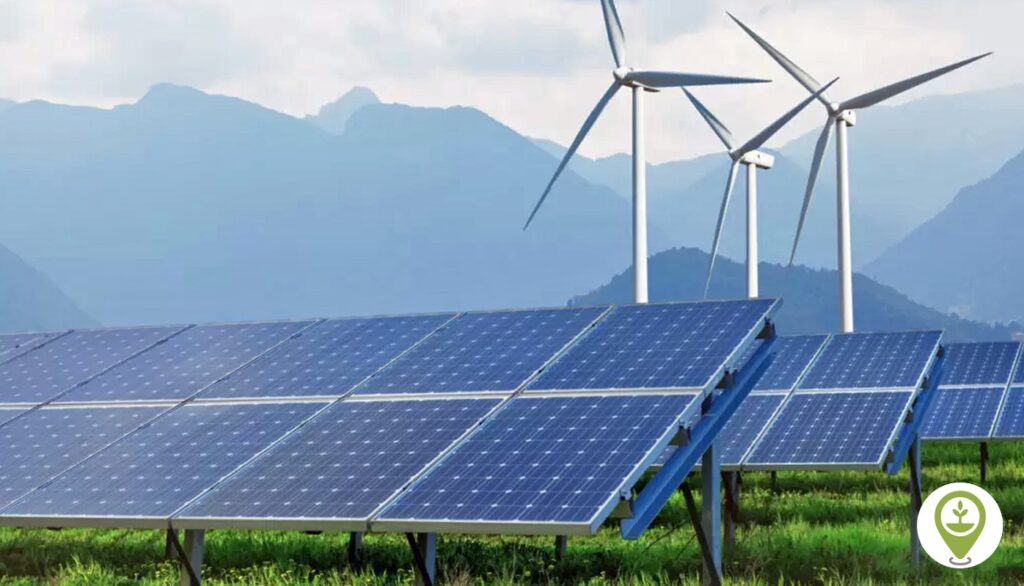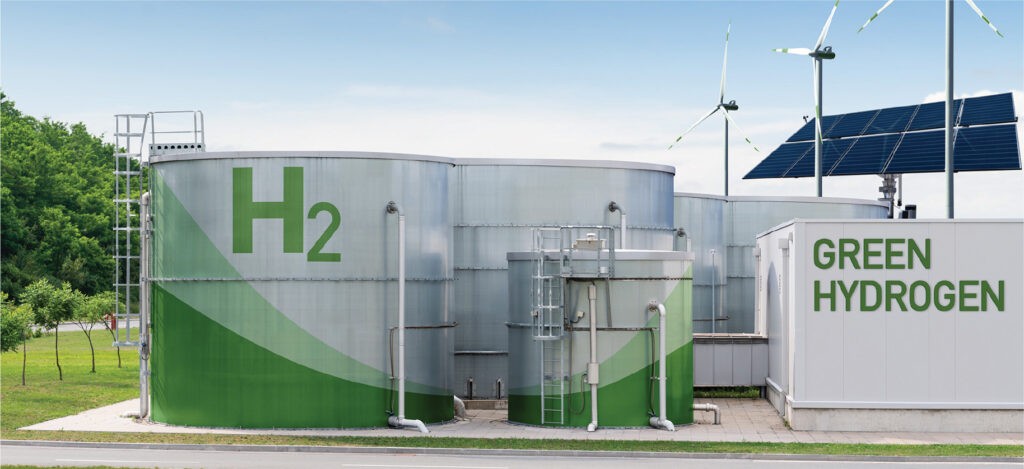Viewing results 1 - 6 of 34
With the support of National Company, KAZAKH INVEST, Saryopan Operating company, together with the Belgian multinational company, Carmeuse Group, opened the first plant in Kazakhstan for the production of high-quality lime. The project's cost amounted to about 30 billion tenge ($65 million) and created more than 200 permanent jobs. Bauyrzhan Aitkulov, Director of the KAZAKH INVEST Project Department, attended the opening ceremony on December 15th. The enterprise's production capacity in the Saryopan field, Osakarovo district, Karaganda region, will amount to 330,000 tons annually. The plant's launch will completely replace the import of grade one lime to Kazakhstan and allow exports with added value. Access to domestic lime will increase the productivity of ferrous and non-ferrous metallurgy enterprises in the country. High-grade lime used for effective flue gas purification from CHP plants will significantly contribute to solving environmental problems in Kazakhstani cities, bringing coal plants in line with European standards. Aitkulov said that the national company has supported the project since 2018. He stressed that the plant's opening reflects the industry’s growth in the Karaganda region and the country's desire for environmentally sustainable development. The enterprise will be one of the most environmentally-friendly plants in Kazakhstan. The plant was built using ESG standards, and the dust cleaning system installed at the enterprise will provide a high degree of air purification.
In 2026, Kyrgyzstan will reach a surplus in the power generation sector and begin exporting electricity, Akylbek Japarov, the Chairman of the Cabinet of Ministers-Head of the Administration of the President of the Kyrgyz Republic, said on December 15th at the People's Kurultai (an assembly of representatives of the public from all regions of the country). The prime minister said that in order to eliminate shortages of electricity, five small hydroelectric power plants of 71 MW each, five solar power plants, and a second hydroelectric unit at the Toktogul hydroelectric power plant were put into operation in 2023. In 2024, the country’s power generation capacity will increase by 178 MW, with 25 small hydroelectric power plants and another hydroelectric unit at Toktogul being put into operation. Solar power plants with a capacity of 700 MW and the hydroelectric power station Bala-Saruu with a capacity of 5 MW will also be commissioned in the Talas region. The head of the Cabinet of Ministers focused on the implementation of these large energy projects. “Preparatory work for Kambarata HPP-1 is being completed: tunnels, roads, lines,” Japarov said. “Negotiations are underway with the World Bank on the first phase of its construction. The design of the Kazarman, Kokomeren, Chatkal cascades, and the Kemin-Torugart line with a capacity of 500 kilovolts will begin. In 2024, work on the Kyrgyz part of the CASA-1000 [electricity transmission] project will be completed. In two years, the Kulanak hydroelectric power plant will start operating. In 2026, we will reach a surplus in the energy sector and begin exporting electricity.” The Chairman of the Cabinet of Ministers also said that in 2024, Kyrgyzstan will begin exporting coal to China from four deposits, and a coal enrichment plant will be built in the Naryn region by 2025.
Issues of supporting new projects in the field of renewable energy were discussed on December 14th at a meeting of the Council for the Transition to a Green Economy, chaired by the Prime Minister of Kazakhstan, Alikhan Smailov. At the meeting, Madina Abylkasymova, Chairperson of the Agency of the Republic of Kazakhstan for Regulation and Development of the Financial Market, said that today the necessary legislative framework for the development of “green” finance has been created in Kazakhstan. A new Environmental Code has been adopted, and changes have been made for the issuance and circulation of green bonds and ESG bonds. The Prime Minister emphasized that a large-scale transformation of the economy requires, among other things, an increase in the volume of “green” investments. “To achieve carbon neutrality by 2060, financing in the amount of more than $600 billion is required. Therefore, it is necessary to intensify efforts to attract investments in green technologies,” said Smailov.
The Ministry of Investment, Industry and Trade of Uzbekistan on July 10 hosted negotiations between Minister Laziz Kudratov and Mohammad Abunayyan, Chairman of the Board of ACWA Power. The parties discussed implementation of the company’s current portfolio of projects in Uzbekistan and prospects for expansion of investment cooperation in energy and chemical industry, the Uzbek ministry said. Today the investment portfolio of the Saudi company in Uzbekistan includes 8 projects with a total cost of over 6.8 billion USD and design capacity of more than 5.5 GW. It was emphasized that the success of the company plays an important role in promoting Uzbekistan as a comfortable investment destination and a leading center for introduction of renewable energy sources in the Central Asian region. Constructive exchange of views was held on topical issues relating to implementation of current projects on construction of a combined cycle power plant in Syrdarya region with a capacity of 1.5 GW, wind power plants in Bukhara region and Republic of Karakalpakstan with a total capacity of 2.6 GW and solar power plants in Samarkand and Tashkent regions with a capacity of 1.4 GW. An agreement was reached to take a set of practical measures to ensure accelerated commissioning of the projects. A number of new initiatives were considered separately. Thus, the parties welcomed the completion of necessary procedures and reaching new agreements on the project of construction of a plant for the production of "green" hydrogen, with a capacity of 3 thousand tons per year. The start of construction works is scheduled for the fall of this year. In addition, a discussion was held on the prospects for accelerating the project of localization of equipment production for wind turbines. Each of the parties stressed that the implementation of this project in Uzbekistan will significantly expand the geography and volume of renewable energy sources and increase the availability of these technologies in the domestic market.




